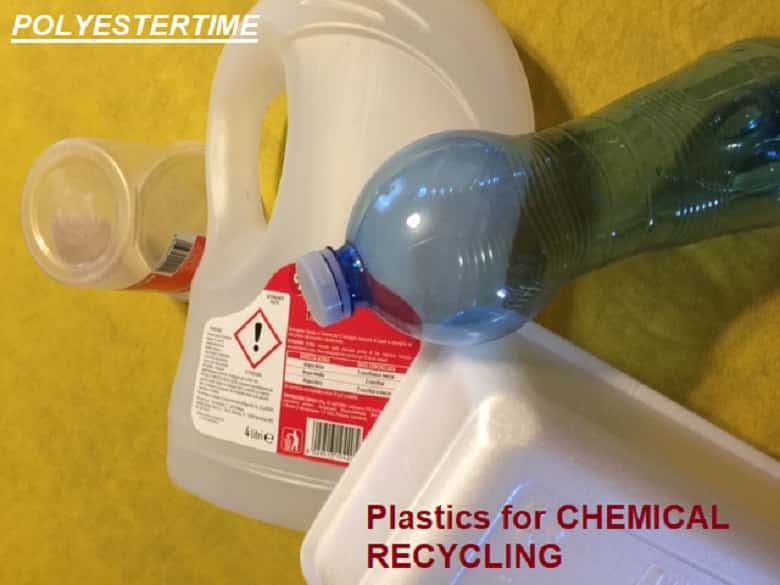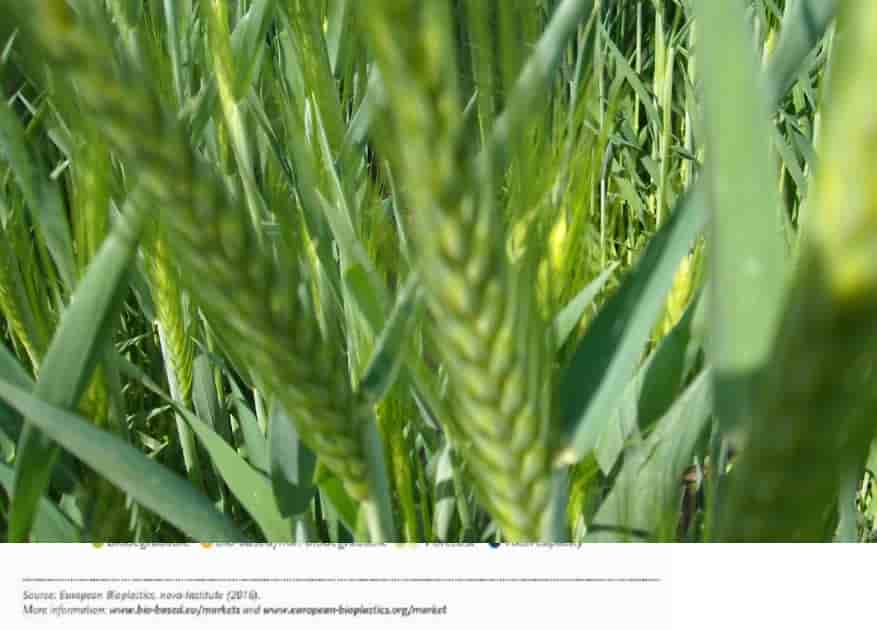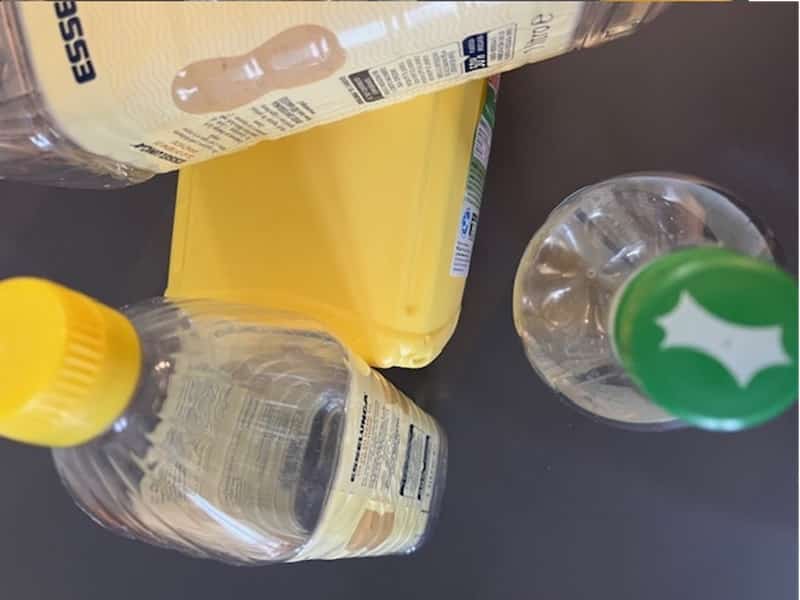Plastic Recycling – Japanese refiner Eneos is launching a chemical recycling demonstration project for waste household plastics 27-06-2024
Plastic Recycling
Crude Oil Prices Trend

Crude Oil Prices Trend by Polyestertime
Japanese refiner Eneos is launching a chemical recycling demonstration project for waste household plastics
The initiative begins with collecting 1.6 tons of waste plastics, primarily polypropylene, polyethylene, and polystyrene, in south Japan’s Oita prefecture. Eneos aims to recycle these materials into raw oil and assess whether it can be used to create new petroleum or plastic products. Plastic Recycling
The company has set up a recycling facility for the demonstration but hasn’t disclosed further details, including raw oil output capacity or post-March plans.
Additionally, fellow domestic refiner Idemitsu plans to start commercial operations at its chemical recycling plant in east Japan’s Chiba prefecture. The facility will process 20,000 tons of used plastics annually between April 2025 and March 2026. Idemitsu will collaborate with recycling companies Ichikawa Kankyo and Maeda Sangyo to collect plastic waste. Plastic Recycling

INEOS Olefins & Polymers Europe has taken a significant step forward in sustainable materials management by inaugurating the world’s first advanced multilayer, blown film line equipped with Machine Direction Orientation (MDO) technology at their Research and Development Center in Brussels
This pioneering technology, developed in collaboration with Hosokawa Alpine, allows INEOS and its partners to create recyclable flexible films designed to replace the currently used multi-material films that are challenging to recycle. Plastic Recycling
The introduction of this new pilot line represents a substantial investment and is poised to prevent approximately one million tonnes of waste from ending up in landfills annually. By enabling the development of single-material films that maintain the necessary performance attributes, these innovations support the goals outlined in the EU Packaging and Waste Regulation, promoting a transition towards a more circular economy.
Rob Ingram, CEO of INEOS Olefins & Polymers Europe, emphasized the critical role of flexible packaging films in both the marketplace and environmental sustainability. He acknowledged the public’s concerns regarding plastic waste and stressed the ongoing commitment to collaborating with stakeholders to forge sustainable packaging solutions. Ingram expressed enthusiasm about the potential impacts of this investment, particularly the advancements in fully recyclable films. Plastic Recycling

Teijin Carbon Europe has achieved ISCC PLUS certification for its Tenax carbon fibre produced at the Heinsberg-Oberbruch plant in Germany
Following a similar accreditation for its Mishima plant in Shizuoka Prefecture, Japan, announced in June last year, the production and sale of Tenax carbon fibre made with sustainable acrylonitrile began in December. This sustainable production is now being expanded to Europe. Plastic Recycling
The sustainable acrylonitrile used in Tenax carbon fibre is derived from waste and residues of biomass-based products or recycled raw materials, certified through the mass balance approach. The ISCC method ensures verifiable tracking of materials through complex value chains, mixing biomass-derived raw materials with petroleum-derived ones.
ISCC, an independent organization, leads in certification for this field. Materials from sustainable sources, whether recycled or bio-based, are labeled with a sustainability declaration. Plastic Recycling
The production process for sustainable carbon fibres is identical to conventional methods, ensuring the mechanical and chemical properties of the fibres remain unchanged. A clear mass balance is utilized to distinguish between sustainable and conventional products, based on the sustainability declaration.

Barley-based plastic promises 100% biodegradability
A new material made from modified barley starch can fully biodegrade in nature within two months, offering a sustainable alternative to traditional plastics.
The material is made using natural plant material from crops and could be used for food packaging, among many other things.
Enormous islands of plastic float in our oceans and microscopic particles of it are in our bodies. The durability, malleability, and low cost of plastics have made them ubiquitous, from packaging to clothing to aircraft parts. Plastic Recycling
But plastics have a downside. Plastics contaminate nature, are tough to recycle, and their production emits more CO2 than all air traffic combined.
“We have an enormous problem with our plastic waste that recycling seems incapable of solving.
Therefore, we’ve developed a new type of bioplastic that is stronger and can better withstand water than current bioplastics,” says Andreas Blennow, Professor in the plant and environmental sciences department at the University of Copenhagen.
“At the same time, our material is one hundred percent biodegradable and can be converted into compost by microorganisms if it ends up somewhere other than a bin.”
More…

The delusion of advanced plastic recycling using pyrolysis
The world is drowning in plastic. But the plastics industry is peddling a “solution” that works like magic Plastic Recycling
Last year, I became obsessed with a plastic cup.
It was a small container that held diced fruit, the type thrown into lunch boxes. And it was the first product I’d seen born of what’s being touted as a cure for a crisis.
Plastic doesn’t break down in nature. If you turned all of what’s been made into cling wrap, it would cover every inch of the globe. It’s piling up, leaching into our water and poisoning our bodies.
Scientists say the key to fixing this is to make less of it; the world churns out 430 million metric tons each year. Plastic Recycling
But businesses that rely on plastic production, like fossil fuel and chemical companies, have worked since the 1980s to spin the pollution as a failure of waste management — one that can be solved with recycling.
Industry leaders knew then what we know now: Traditional recycling would barely put a dent in the trash heap.
It’s hard to transform flimsy candy wrappers into sandwich bags, or to make containers that once held motor oil clean enough for milk. Plastic Recycling
Now, the industry is heralding nothing short of a miracle: an “advanced”type of recycling known as pyrolysis — “pyro” means fire and “lysis” means separation. It uses heat to break plastic all the way down to its molecular building blocks.

Plastic recycling ‘the only way’ of introducing circularity to oil and gas industry
A new report cites plastics as “the most relevant to the circular economy” among products commonly found in the oil and gas industry.
Establishing a circular economy would have a transformative impact on the oil and gas industry – but the only way of doing so to any extent would be through ramping up plastic recycling, according to a new report. Plastic Recycling
GlobalData’s new Circular Economy in Oil and Gas report analyses the growth of plastic waste and the crucial role of oil and gas industry in enabling the circular plastic economy.
It states that “incorporating product circularity in the context of the oil and gas industry is extremely difficult” but cites plastics as “the most relevant to the circular economy” among the industry’s conventional products. Plastic Recycling

Biobased – New Developments in the Chemistry of Advanced Flame Retardant Materials 26-06-2024
Plastic Recycling
